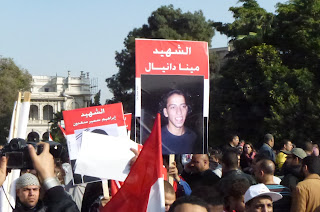Ramadan is the Islamic holy month of fasting and prayer, but it is also the Muslim world's television drama addiction month. At the end of a day’s deprivation, millions
of Muslims from the Atlantic to the Persian Gulf
gather in front of their television sets to follow daily episodes of month-long
miniseries especially created for the Ramadan sweeps month. Every year, one or
two of the multiple offerings becomes the breakout success, and the year’s forerunners
invariably reflect the zeitgeist of the Islamic world.
This year, the two
stand-outs are a mind-boggling contrast: on the one hand, a scholarly, pious docudrama
of the life of Omar, a Disciple of the Prophet and second Caliph; and on the
other, a wild Egyptian version of Sex and the City. It is disconcerting enough
that ‘The Girls’, as the latter is called, is allowed to air in newly
Islamist-governed Egypt and conservative Gulf Emirates- more about that later-
but even more controversial is the life story of the Caliph Omar. That strikes
at the heart of a particular Sunni-Shiite split in Islamic doctrine.
In the eponymous docudrama,
actors play the Caliph Omar and other close disciples of the Prophet, as well
as members of his family, breaking a long-standing taboo in the film industry
of the Muslim world. So far, Arabic screens have been spared Cecile B. De Mille
style religious epics with Victor Mature and Charleston Heston in biblical
garb.
But the interdiction
on portraying Muhammad and his disciples is a Sunni tradition, never observed
in Shia Islam. In Iran ,
black-browed, black-bearded, turbaned depictions of Muhammad, the Caliph Ali
and his martyred son Hussein, are ubiquitous. On the other hand, in strict
Sunni Saudi Arabia, the prohibition against idol-worship is so sweeping that
the very shrines and tombs of the Prophet’s family were destroyed by Wahabi
zealots in the eighteenth century.
Even in moderately
Sunni Egypt, imams of the Azhar
University
On the other hand, the
four girls of ‘Girls’ Stories’ are blatant mimics, if not parodies, of the Sex
and the City Quartet, down to the Carrie character’s habit of concluding each
episode by recording her thought of the day on her laptop. They live in an
unrecognizable, aseptic Egypt
of gated communities and traffic-less roads, and pepper their vocabulary with
five Americanisms per sentence. Camellia, the crudest and wildest, is the
‘Samantha’ character, but all four of the ‘girls’ vamp around in six-inch
heels, skintight spandex, décolletage and nip-tuck faces. They chase elusive
boyfriends and equally elusive jobs with the talentless single-mindedness of
rhinos. They abuse any male at hand, including lackluster suitors and doting
daddies- not Sugar Daddies, but their actual progenitors; for these Egyptian
‘girls’ are spoilt brats who still live under the roof of improbably indulgent
fathers whom they treat with such contempt that one boyfriend actually objects.
The girls are so unsympathetically drawn that it is a mystery which demographic
these charmless protagonists are intended to attract.
Unless, of course,
wittingly or unwittingly by their creators, they represent a cautionary tale,
girls gone wild, ‘secular’ values taken to a cartoonish extreme. In that case,
it is no wonder that Egypt ’s
newly-elected Islamist government turns a blind eye to their onscreen shenanigans
during the holy month of Ramadan.



